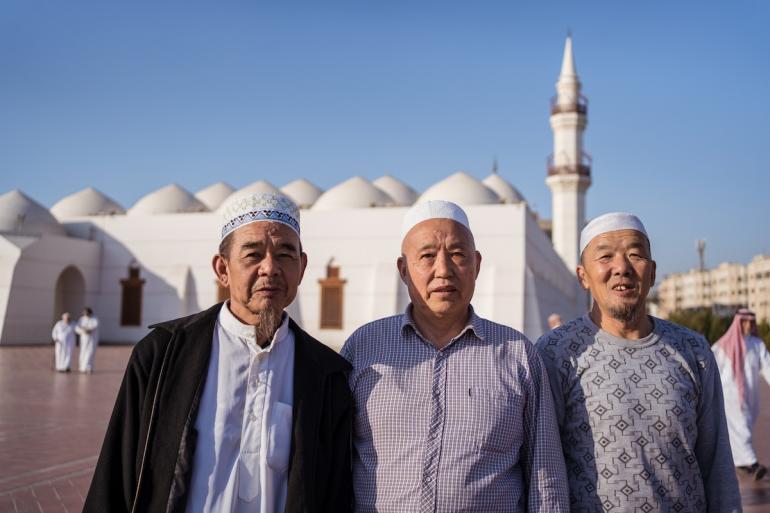China imposes stricter rules on Muslim pilgrimage

Authorities in Beijing this week imposed stricter rules banning “independent personal pilgrimages” of Chinese Muslims to Mecca.
China’s State Administration for Religious Affairs ordered that only trips organized by the state-sanctioned Islamic Association of China will be permitted.
The administration said the Islamic association “should educate Haj attendees on patriotic and safe behavior… and prevent the infiltration of religious extremist thinking and behavior,” reported the South China Morning Post (SCMP).
The Haj is an annual Islamic pilgrimage to Mecca, the holiest city for Muslims. It is a mandatory religious duty for Muslims that must be carried out at least once in their lifetime.
China, however, deems personal pilgrimages as illegal and Chinese Muslims who will violate the new rules could face serious repercussions.
Beijing has been implementing a ban on personal pilgrimage and allowing only official trips to Mecca since 2005, but the new rules have specified how Haj attendees must be selected.
Chinese Muslims who are “patriotic,” “law-abiding,” have “good behavior,” and have the capability to fund their trips will be permitted to proceed.
“The measures impose a political test for Muslims who want to go on the pilgrimage,” said Nury Turkel of the US Commission on International Religious Freedom.
“It is highly likely that the government discriminates against certain Muslim groups because of this political test,” Turkel told SCMP.
Beijing’s policies on religious freedom have drawn criticism from the international community especially in regions where there are large Muslim communities.
Shih Chien-yu, a lecturer on Central Asian relations at Taiwan’s National Tsing Hua University, told SCMP that the new rules are part of Beijing’s attempt to control religious activities and to prevent exposure of its alleged atrocities against the Muslim community.
“During the Haj, [Chinese Muslims] meet [other] Muslims from all over the world, exchange experiences and influence each other,” said Shih.
“Some Muslims who returned after performing the Haj brought their experiences home and criticized local Chinese clerics, which led to issues,” he added.
He claimed that Beijing is afraid of the results of the trips on Chinese Muslims, adding that those who completed the Haj gained more respect when they returned to China.
He said the Communist Party is worried that Muslims could adopt Islamic teachings that would question the state policy on religious freedom.
Human rights organizations and media reports indicated that at least one million Muslim Uyghurs and other ethnic and religious minorities in the Xinjiang region are being held in “re-education camps” and subjected to forced labor.
Since 1985, Beijing has been directing a centralized organized Muslim pilgrimage to Mecca, a system that is focused on regions where there are large Muslim populations.
Turkel claimed that Chinese Muslims who completed the pilgrimage without seeking approval from the government have been “harassed and even tortured.”
He also said Uyghurs, who are the second-largest Muslim group in China, are only given a few slots on the state-organized Haj.
Out of the at least 12,000 Chinese Muslims who completed the state-organized Haj in 2017, only 1,400 Uyghurs were allowed to join, according to the Society for Threatened Peoples in Germany. - LiCAS.News
Radio Veritas Asia (RVA), a media platform of the Catholic Church, aims to share Christ. RVA started in 1969 as a continental Catholic radio station to serve Asian countries in their respective local language, thus earning the tag “the Voice of Asian Christianity.” Responding to the emerging context, RVA embraced media platforms to connect with the global Asian audience via its 21 language websites and various social media platforms.














